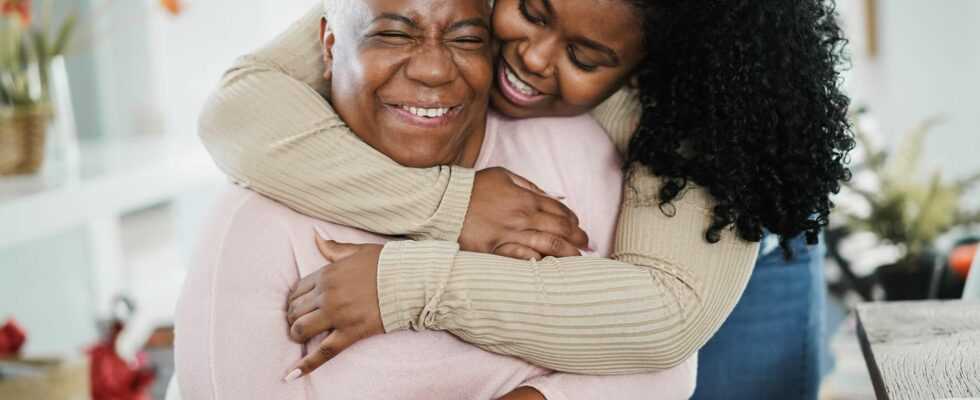psychology
Hug it out
4 facts why hugs are good for us
© DisobeyArt / Shutterstock
Hugs are something so important. For us, they mean: less stress and more security. We find affection and comfort around others, or even around our own hug.
There are many interesting things that should make us bigger huggers! Studies show that even hugging ourselves helps us. But there is no mention of the short rounds of greetings when meeting friends. We prefer longer hugs to short hugs at the front door, and of course they’re even nicer with the right people! The ones we love to surround ourselves with are also the best hug partners. But hugging people we don’t even know can also be good for our bodies. This is of course rather difficult, especially in times of the pandemic. We often miss the important closeness with our loved ones or the spontaneous meeting with friends. But we should not forget this wonderful habit! Because hugs give us so much back. These four facts about hugs show why it’s important for us to be cautious when approaching again:
The anti-stress HUG
Twenty seconds of closeness is enough: A study from Frankfurt was able to prove that both strangers and your own hugs can reduce your own stress (Dreisoerner et al., 2021). 159 volunteers were exposed to a stressful situation during the test: a simulated job interview. The levels of the stress hormone cortisol were measured. After the stressful situation, the participants either didn’t get a hug, got a hug from someone else, or hugged themselves – with the result that those hugged were less stressed. So it doesn’t matter whether it’s another person or yourself. So if no one is around, you can just wrap your own arms around you.
The longer the better
Admittedly, your next hug shouldn’t last five minutes. In case of doubt, this will be a bit strange for you and your counterpart. But the next time you meet up with friends or family, feel free to try extending your hug a bit. A study from London found that longer hugs are perceived as more comfortable (Dueren et al., 2021). The 45 participating women had a choice of hugs lasting one second, five seconds or ten seconds. One second was the worst. So try to enjoy the closeness of friends or family members a little more next time. This will probably come as a surprise to your loved ones at first, but in the end everyone will probably benefit from it.
Live healthier – with hugs!
Of course, it is good for us to feel comfortable and to be close to someone close to us. But especially when it comes to health, hugs are even more than just the feel-good factor! In Canada, researchers found that older people who are hugged at least occasionally in their lives feel healthier (Rogers-Jarrell et al., 2021). They analyzed the data of 20,000 people aged 65 and over. Those who stated that they were hugged sometimes, often, or all the time also stated that they felt healthier in life than the other participants. Even after several disruptive factors such as relationship status, income or chronic illnesses were removed from the assessment, this result remained the same. So: those who hug more often feel healthier and also ensure that others feel healthier.
Different cultures hug differently
Italians or Spaniards like to kiss us on the cheeks when we first meet, some may even hug us directly. An openness to physical closeness, which usually catches us a little unprepared when we grew up in Germany. In fact, our culture can affect how often we kiss or hug others. Scientists from Poland analyzed the data of 14,000 individuals from 45 countries. The result: people in less conservative or less religious countries show more physical affection to themselves and their loved ones. Warmer countries also fared better. There were also differences among the participants: Younger people hug more often than older people. In addition, men and women are actually equal in partnerships, but women tend to hug their friends, for example, while men do so less often. How often you hug is ultimately culturally dependent. How we grow up in society and what we experience from our environment plays a role. Nevertheless, we shouldn’t forget to give our loved ones a little warmth and security with a hug every now and then, even in cold Germany.
Source: Psychology Today
